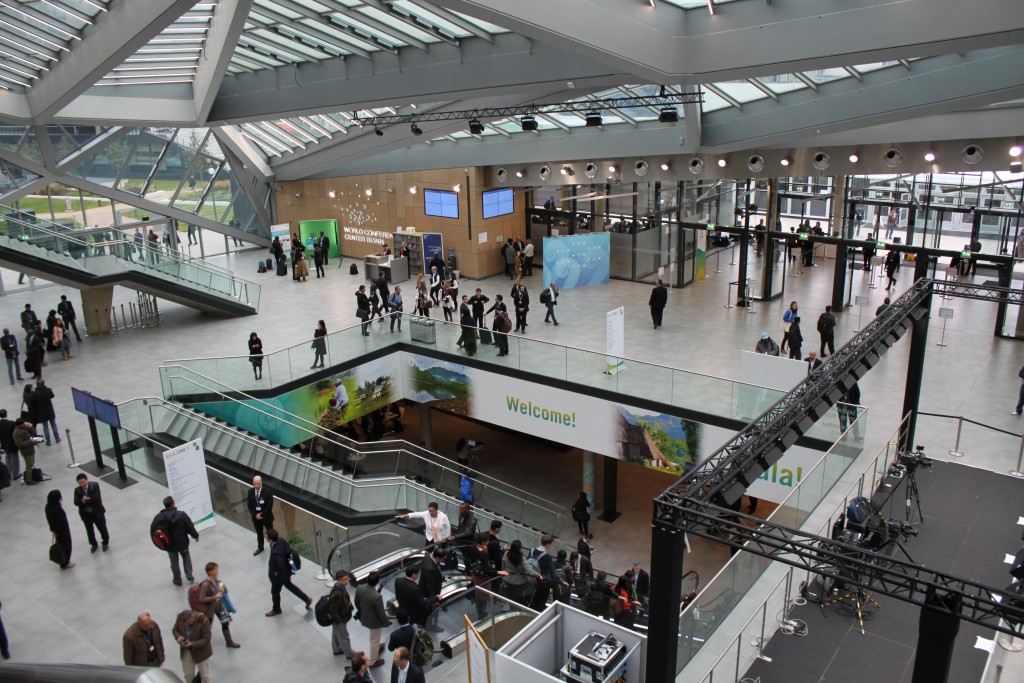Today I attended the Opening Plenary of the APA, the Ad Hoc Working Group of the Paris Agreement that is tasked with operationalizing the prescriptions set forth in the treaty. Delegates face a 2018 deadline for crafting draft language that will be finalized during the Talanoa Dialogue next year at COP 24 in Poland. Throughout this week, delegates will participate in informal consultations to hash out complex implementation details covering mitigation, adaptation, transparency, and the global stocktake (the five year review process for the Nationally Determined Contributions). Being the policy wonk that I am, I find these technical negotiations very interesting–I hope to observe the consultation on mitigation tomorrow (crossing my fingers that I will be able to get tickets)!
Some delegates at the Plenary also gave striking opening statements. Syria announced that they have joined the Paris Agreement, leaving the US as the only nation opposed to it (albeit, we cannot formally withdraw for three years). Venezuela was the only country in their opening statement to allude to the US, and the Venezuelan delegate did not mince words when he demanded that other industrialized countries compensate developing countries for the lack of climate action effort from a particular geopolitical problem (aka the Trump administration). Small island nations and developing countries reiterated that industrialized countries need to do more to finance and support poorer nations as well. It will be interesting to see how this mantra plays into the negotiation process.
In the afternoon, I went to a press conference held by Dr. James Hansen. In his brief talk he discussed his argument for a carbon fee and dividend policy to put a price on carbon and therefore make the major carbon players pay for the pollution they emit. He and his granddaughter are even involved in a lawsuit (Juliana v. United States) to try to hold the US accountable for failing to take action on climate change. Also, according to Hansen, the 1.5 degree Celsius goal is still attainable, but only if we reduce emissions by three percent each year (which is only feasible if significantly more countries, including the US, implement a national carbon pricing system). I am not, however, optimistic about the probability of that happening.
On a lighter note, we went out to a cozy German restaurant in downtown Bonn to unwind after a long but productive day. Cheers!
Also, if you want, you can tune into some of the conference talks On Demand here!
